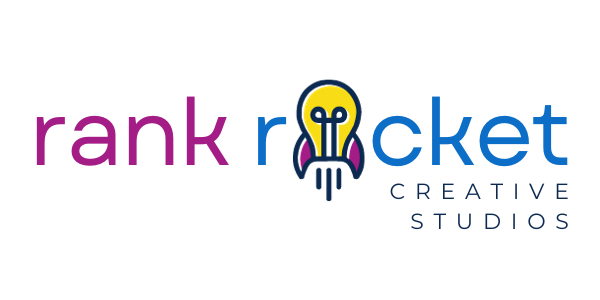Decoding E-E-A-T: The Key to Google's Trust and SEO Success
When it comes to SEO and online marketing, it's essential to keep up with Google's ever-changing rules. At the core of this evolution is the concept of E-A-T, an acronym denoting Expertise, Authoritativeness, and Trustworthiness. E-A-T was introduced in 2018 as part of the Quality Raters Guidelines, and it swiftly assumed a pivotal role in the SEO landscape. More recently, Google introduced an additional "E" to the acronym, transforming it into E-E-A-T. This new "E" represents "Experience," which signifies a noteworthy shift in Google's approach to content evaluation.
But does E-E-A-T actually influence your website's ranking? How does Google evaluate the user experience, and how does it compare to other ranking criteria? In this blog, we will explore the evolution of E-E-A-T and delve into how it impacts your website's trustworthiness and search engine rankings.

E-A-T: The Cornerstone of SEO
E-A-T, standing for Expertise, Authoritativeness, and Trustworthiness, is the foundation of content quality evaluation. Introduced in 2018, it was crafted to guide Google's content evaluators in identifying high-quality, accurate, and trustworthy content. Since then, these principles have become pivotal in SEO.
The Emergence of E-E-A-T: The Extra "E"
Google's decision to introduce the second "E" to E-E-A-T signifies a significant shift in its content evaluation criteria. This additional "E" now represents "Experience," underscoring Google's heightened emphasis on content creators having practical, hands-on knowledge about the topics they write about. Although it might seem akin to the existing "E" for "Expertise," the new "Experience" factor highlights the significance of real-world familiarity and personal involvement in content creation.
Understanding E-E-A-T: The Four Pillars of Trust
Let's delve into what each of these means in the context of SEO.
Experience: The Newest Pillar of Trust
The recent introduction of "Experience" in E-E-A-T signifies a significant shift in Google's content evaluation criteria. This added dimension underscores the importance of content creators possessing real-world familiarity and hands-on knowledge about the topics they write about. This shift aims to ensure that content is not just theoretically informed but also grounded in practical, first-hand experience.
For example, let's consider content related to commercial flight routes. It becomes significantly more credible when the author has aviation experience. This means the writer has either worked in the aviation industry or has direct, practical knowledge of how commercial flight routes are planned, maintained, or operated. Their insights come from personal involvement, which lends authenticity to their content.
In essence, "Experience" emphasizes the need for content creators to not only understand a subject theoretically but to have walked the path, touched the tools, or personally witnessed the dynamics of the topic. It encourages a more profound, genuine understanding that resonates with readers and ensures the information provided is rooted in real-world applicability.
Expertise: Mastery of the Subject
While "Experience" focuses on hands-on familiarity, "Expertise" remains a critical component of E-E-A-T, underlining the importance of in-depth knowledge in a given subject. It signifies the author's capacity to provide insightful, well-informed content that goes beyond surface-level information.
Not everyone can be an expert on every topic, but the core principle here is to provide accurate information supported by credible sources. "Expertise" encourages content creators to demonstrate a deep understanding of their subject matter, whether through extensive research, professional experience, or ongoing learning.
In essence, "Expertise" acknowledges that becoming an expert takes time and dedication. It encourages content creators to continually expand their knowledge and ensure that their content is based on a solid foundation of understanding. This principle aims to elevate the quality of content and enhance its value to readers.
Authoritativeness: Establishing Credibility
"Authoritativeness" in the context of E-E-A-T is about the reputation of both the author and the website. It measures the trustworthiness and reliability of your website relative to others in your niche. This reputation often ties into domain authority, a critical metric for determining a website's credibility.
To grasp the concept of authoritativeness, let's consider renowned online sources such as Academia and Taylor & Francis Online. These websites have earned their status as reliable and authoritative sources for a specific reason— their unwavering commitment to academic and peer-reviewed research topics. This dedication means the content is scrutinized by some of the world's leading scholars.
So, what ties reliability to authority in the digital world?
To comprehend the relationship, it's essential to take a step back and explore "domain authority." Domain authority is a scoring system developed by Moz, previously known as SEOmoz. It estimates how well a website will likely rank on search engine results pages (SERPs). This score is measured on a scale from 0 to 100, with higher scores indicating a greater ability to rank prominently.
Why is domain authority significant? It serves as a barometer of the overall reliability of a website's content. Websites boasting higher domain authority scores tend to fare better in search engine rankings. Consequently, they become more likely to attract clicks and visitors. This makes domain authority a critical metric for understanding a website's perceived trustworthiness and influence.
In essence, "Authoritativeness" underlines the importance of establishing your website as an authoritative source within your niche. It involves consistently delivering high-quality, well-researched, and expertly informed content. By building a reputation for credibility, you not only enhance your site's authority but also strengthen your SEO performance.
Trustworthiness: The Cornerstone of SEO Excellence
"Trustworthiness" is a fundamental ranking factor in E-E-A-T, and it evaluates the reliability of a website's content. This goes beyond the content and considers various factors, such as using secure connections (https://). Websites prioritizing user security are favored in search engine rankings.
Both search engines and users trust secure websites, as they provide a safer browsing experience. Trustworthiness ensures that users can access content without concerns about data security, privacy, or the accuracy of the information presented.
The Bottom Line
E-E-A-T encompasses Experience, Expertise, Authoritativeness, and Trustworthiness, with "Experience" as the significant addition. Succeeding in SEO involves delivering accurate, informative, unique, and relevant content tailored to your website's niche. This means producing content that is not only well-researched and informed but also rooted in personal involvement and practical knowledge, where applicable.
It's important to remember that SEO is continually evolving, and staying updated with new trends and changes is crucial. If you're looking to enhance your online visibility and rankings, considering the guidance of SEO experts is a wise approach to navigating the complexities of E-E-A-T and SEO.
Are you ready to elevate your online presence and skyrocket your rankings in search engines?
At Rank Rocket, we deliver top-tier SEO services that align with the latest SEO trends and Google's evolving algorithms. Whether you need to enhance your website's E-E-A-T, improve content quality, or boost your search engine rankings, we've got you covered. Don't miss the opportunity to outshine your competitors and connect with your target audience. Contact us today to explore how our expert SEO services can transform your digital success!



